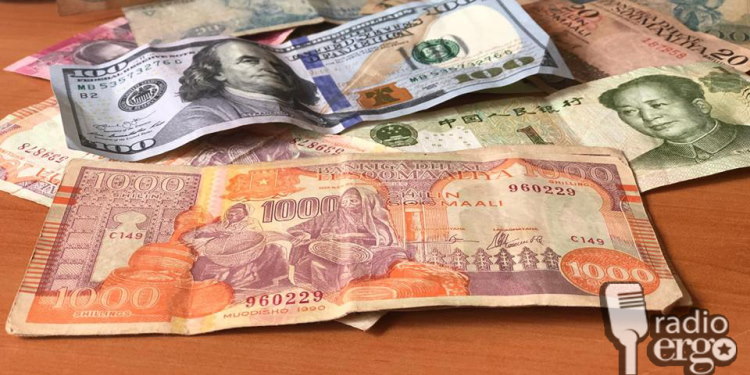
Farhan Ayanle, 32,has been struggling to make ends meet after his money changing business collapsed in March, alongside Garowe’s 70 or so money changers in the central Somali town.
Following claims of huge sums of counterfeit currency circulating in the market, the local business community in Garowe refused to use Somali shillings and shifted to mobile money transfers in US dollars.
“I provided for my family and paid the bills with the small profit I made changing money. I worked as a moneychanger for three years and it was the only job I knew well. But now, I have been out of work for six months,” said Farhan, who used to take Somali shillings and exchange them for dollars.
“We dumped our worthless Somali shillings in the streets of Garowe,” he added.
Farhan, a father of three, had to move his wife and two youngest children to Hamur, a small village in eastern Nugal region, because he could not afford the $65 rent for their two-roomed house in town. His child in class six at a primary school in Garowe is living with a relative, who is paying the school fees.
Farhan said the losses he incurred when the shilling was declared worthless crippled him financially, as he had no savings and no one in town would lend him money to start up another business. He called on the authorities to come up with a solution to the crisis affecting many families.
“We want the government to bring Somali shillings back into use. Ten thousand Somali shillings used to feed an entire family for a day, but now it is worthless. Everyone is feeling the pain of this crisis!” he exclaimed.
Daud Ali Hersi, 27, another money changer in Garowe, said his family used to eat three meals a day but are not struggling to cook just one meal. He was making five to ten dollars a day in the money market, and his family was able to buy food to last them a month from a local store. Now they are depending on help from neighbours and relatives.
“I am a father and I have dependents. I can’t sit back at home, I still go to the market at eight in the morning to see if I can get help from friends, but I return empty handed in the evening,” Daud said. “I have two young children and it is so sad that I can’t afford to buy them milk.”
The director of Somali shilling development at Puntland’s ministry of trade and industry, Abdulkadir Said Dahir, told Radio Ergo that their hands are tied, as issues relating to the Somali shilling printing are handled by the federal government. He blamed the central government for neglecting the crisis role and failing to safeguard the national currency.
“Constitutionally, the federal government is responsible for the printing of the Somali shilling and its regulation against other currencies. For us, we have no solution for this problem,” he said.
Source: Radio Ergo


